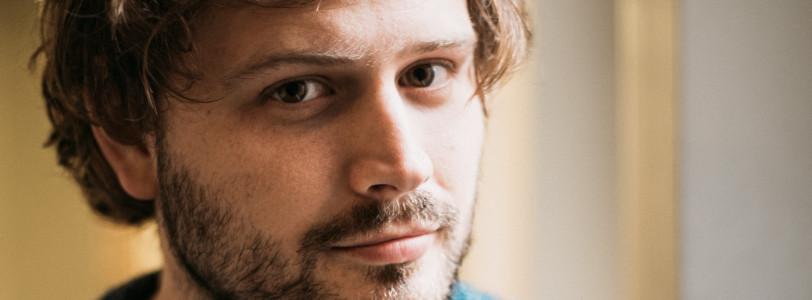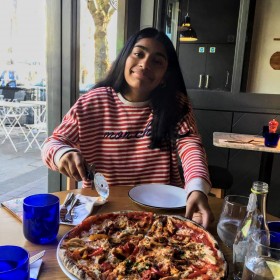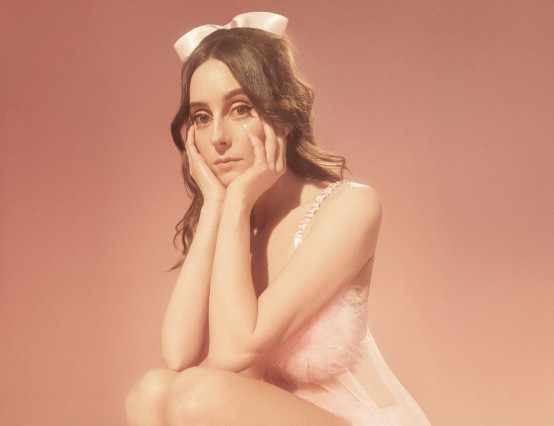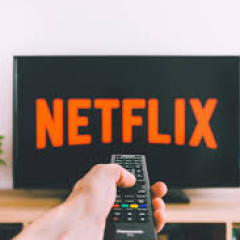Could you introduce yourself and the film?
Absolutely - I am a poet, filmmaker and essayist. My ‘creative practice’ (a fairly loathsome phrase dripping with conceited liberalism...The posturing of the ‘creative’ that detracts/distracts from the work...a creation of the unholy coagulation of funding applications and social media promotion!) ...anywho, yes, my ‘creative practice’ is based in poetry but branches out into film and essays.
I completed a PhD on the poetry of ‘John Ashbery and Surrealism’ at Newcastle University. During this time I was fortunate enough to meet and talk to the Poet in New York (2014) and work in his archives at Harvard (all of which constitutes the premature peak of my writing life!). My PhD allowed me to explore the films of Guy Maddin and surrealist cinema in addition to formulating a sense of Surrealism that extended beyond the dogma of Breton and into its wider connotations as a re-invigoration of perception (greatly helped through reading Maurice Blanchot, Georges Bataille, Walter Benjamin, and the long poems - Three Poems and Flow Chart - of John Ashbery). My interest in film was spawned amidst a reading of Surrealism...and has since escalated! My poetry continues through, alongside and out of that escalating film enthusiasm. My first poetry collection, B O X (HVTN, 2018) was followed up at the start of this (grim and strange) year with a second collection, All Particles and Waves (Black Herald Press, 2020).
My short film, ‘Light Noise’ was something I had been working on/brewing/stewing in/imagining for quite a while. It began with the discovery of my Grandfather’s 8mm films, after he passed away the reels were discovered piled in the garage. Sadly my Grandma had binned a lot of the films in an efficient first wave of domestic de-cluttering. The idea to use the footage as part of a reimagined film to explore his experiences of Alzheimer’s began around 2014 – the same year I went to America on my PhD and around the time I was steeped in Maddin’s films. I was keen to tunnel into the parallels between celluloid decay in film history and personal archives and synaptic decay as a result of memory-loss. I originally began the project with a friend who was versed in film editing, we put together an original rough cut that further spurred my interest in the project. As the years went by, it became a larger idea that envisaged a series of short films and an accompanying book.
Why did you decide to make this film? Was it personal experience or a topic that you were interested in?
I wanted to draw from the connections and strangely vibrating interactions between areas of my own research and experiences in my own life. I had been listening to a lot of music that incorporates degraded or decaying analogue material in haunting re-configurations: Leyland Kirby’s Dimentia project, Philip Jeck, William Basinski, and Tim Hecker being the main culprits. These sumptuous fog-swamps of sound were linked to my first viewings of Bill Morrison’s incredible film, Decasia. All of this was productively tangled into my research: Maurice Merleau-Ponty, Ashbery, Maddin...themes of interruption, ‘noise’, decay and memory in relation to dream. As a topic – treating film history and family history as a kind of disintegrating psychogeography – it was always a movement (in forms of attention, perception and memory) through Surrealism towards the confluence of personal and cinematic, history and its embodied experience, film and viewing. I decided to make the film because it seemed (and continues to seem) a logical expression of my own fascinations in crooked orbits of Film and Family.
What was the creative process for making Light Noise?
When it was picked up by BBC and the Arts Council…I was very surprised. It was at a point when I had sent out lots of applications to no avail, excluding the blizzard of rejections. So, yeh, it was an unexpected joy. I wrote a very specific shot order for the collaged footage, which made the editing process fairly swift. The editor I was lucky enough to work with, Matt Dennis, was brilliant. Seeing the film come together, under his more than capable vigil felt like a magical culmination of the ideas that had been circling for a long time. Despite having a very particular storyboard - which played out more like a poetic script - it was really fun to veer off and respond with spontaneity to the natural alchemies of the edit.
What inspired the decision to use home movie footage?
The ‘home footage’ was always central to the project, it was what enabled the project. I was also keen to draw upon the ‘diary film’ aesthetics that were popular in the late 60s and 70s, for example, in the work of Jonas Mekas and Stan Brackhage. I was also interested in how the romantic montage of ‘captured moments’ that ignited much of the avant-garde resistance to narrative during that period (combined with the proliferation of more available equipment) now had a different nostalgia through contemporary saturations of digital replication online – a kind of hauntology that now draws on the digital and its ‘glitch’ in place of the analogue and its ‘scratch’...all that yearning for yesterday’s tomorrows. It’s hard to imagine the ‘diary film’ now as anything more than an irritating extension of Youtube/Vlogging/Apps – the organic sense of documenting the domestic has been replaced by the contrived audition for viral fame. Those early diary works were eccentric and tender diaries; there is now more of an obnoxious pitch to self-documentation...an over-aware manipulation that has long worn-out irony and now exists in its own self-aggrandising sales-pitch of the ‘self’.
How was the original score of Light Noise composed?
I was working with the amazing sound artist, Jamie Cook. A wondrously talented man, who was not only great fun to work with but also managed to eerily reflect back to me precisely the kind of soundscape I’d imagined. I sent him an excitable essay of sound-coordinates and ideas that started the conversation off, giving a sense of the intended atmosphere...or auditory valley in which to marinade each mist and waft of the sonic strange. Jamie used the texture of the original film’s soundtrack - a tape reel that used stock sound effects and incongruous music, and then filtered these sounds through the static between radio stations. All errant transmissions and croaking broadcasts.
What was your career path to where you are today?
I think the term ‘career path’ is sadly nostalgic, or perhaps a liberating irrelevance? Either way, the job market and kind of art that I love do not combine well for vocational stability. After the PhD, I spent around four years applying for academic jobs without any progress – during that time I tutored, taught on and off at Newcastle University, and regularly worked at a cinema. The making of the film was an incredible opportunity and I do hope it leads to making more films and drawing attention to the ‘Light Noise’ project. Ultimately I would love to make three further short films pertaining to this project, and the completion of a book of essays. The book will be a chance for me to invest more time and love into a kind of philosophical film criticism across a series of filmmakers that have meant a lot to me; this will be in parallel to a more oneiric narrative in which an invented ‘I’ explores the rubble of a phantasmagoric cinema with my shapeshifting Grandfather to provide an esoteric history of early cinema. It will flicker between the fictionalised figures of myself and family members perambulating in the ‘unconscious’ – imagined as the ghosts of silent cinema, while the film criticism of certain filmmakers will materialise a ‘conscious’ epidermis to all the spiritual squelch and slip of forgetting. It will essentially be an essayistic journey through cinema and memory, drawing upon my Grandfather’s experiences of Alzheimer’s and my own personal and family-related experiences.
What do you wish you knew when you started out on your career?
I guess this will probably relate to the previous response. I guess I would suggest, with nudging discretion, to my former self:
Do not expect to find fulfillment in external affirmation and support. I feel like my BBC and ACE funding has been the exception, if you want to make something it is healthier to begin it as soon as you can than (A) wait for the ‘perfect conditions’ or (B) look for the acknowledgement or support from any external body of funding. When these things arrive they can be fantastic, but they are not to be relied on and nor should they be seen as markers of quality. Some of the best art will never be recognised. Consequently, it is safer and more sustainable to seek fulfillment in your own artistic markers of quality and purpose...the notion of ‘success’ is unhelpful, think more in terms of what you want to find and create in your art, and how it relates to your meaning and contentment.
Social Media is, unsurprisingly, unhelpful for keeping hold of your own priorities. If you want to use it, devise a limiting strategy that manages your ‘relationship’ to its angry, advertising tentacles.
Get in touch with people that inspire you. People, conversation and thoughtful correspondence are far more rewarding as ways to guide your work than prizes, funding, and social media.
In terms of career, er, yeh...be prepared to keep moving and changing. The security or trajectory implied by ‘career’ is no longer reliably available in the current socio-economic climate...so don’t beat yourself up about finding it really difficult. Sometimes it is harder when you conflate your art with ‘career’...and to take that pressure off is in no way a reflection of your commitment, but is instead the choice to surgically detach your meaning from a capitalist imperative. Which all sounds nice, but you gotta survive...and alas, finding income will always be a fraught challenge. Just try to protect your art from the pressures of an imagined career. Just to be clear, I am offering all these ideas to my former self as an act of self-soothing indulgence...I am in no way endorsing them as profound or even helpful. For me to talk with any assurance on ‘career’ would seem silly, as not only do I feel scrabbling together the outward illusion of ‘career’ is best reserved for job applications, but also because, I think it is unfair to suggest at such an early point in my life that I could have anything useful to say. Plus, I feel that, from the intrusively early stage of the testing at school, through to GCSE, A-Level and Uni, education has distorted art as a means to an ends… as if everything should only ever exist in relation to some unrelenting CV for further opportunities. It keeps people in a state of anxious apprehension, waiting for some omnipotent evaluation of worth to legitimise their worth, and it’s not healthy!
And what is a top tip you would give to someone who wants to follow in your footsteps?
Your own footsteps will be more rewarding. Have confidence in your own integral worth and vision and try to talk to people that inspire you. Otherwise, always good to remember: insects are fascinating, listen to noise, strange films incubate mutant prophecies, worship water, shimmy in the murk, question certainty, and embrace ambiguity as the ever incomplete movement of resolving without resolution.
Where can people find you online?
My website: dspittle.com
My Twitter: @DavidSpittle7
You can read our review of Light Noise here.
New Creatives is supported by Arts Council England and BBC Arts. Check out our New Creatives coverage in the New Creatives Voicebox.









0 Comments